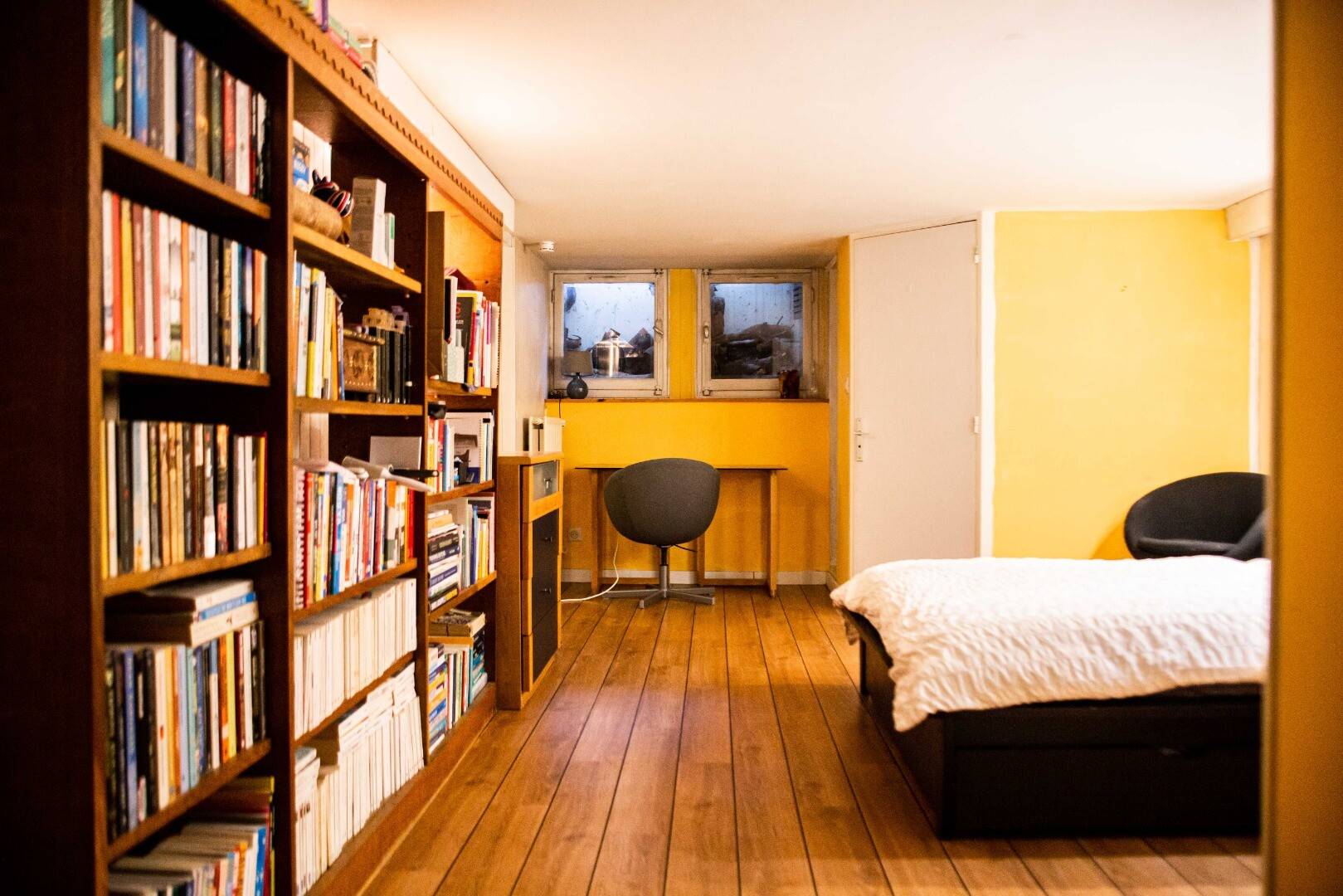
Why choose an intergenerational shared flat?
Intergenerational sharing is becoming increasingly popular in France, especially between students and senior citizens. It's an interesting solution for those who are having difficulty finding accommodation, based on mutual aid and solidarity: the student benefits from free or reduced-cost accommodation, and the senior citizen breaks away from loneliness. Find out how intergenerational sharing works in this article, along with all its advantages.
What is intergenerational sharing?
Intergenerational flatsharing, as the name suggests, brings together people of different ages who live together but are not members of the same family. The way it works is similar to that of conventional shared accommodation, with each resident's home divided into private areas.
More often than not, a student occupies a room provided by a senior resident. This room can be offered in exchange for services (such as companionship, meal preparation, care, housework) or rented for a token amount in exchange for small services. The simple presence of the young person in the accommodation is often enough to reassure the elderly person.$

How does intergenerational sharing work?
Since its regulation in November 2018, intergenerational flatsharing has been formalized by an intergenerational solidarity cohabitation contract : the “contrat de cohabitation intergénérationnelle solidaire”. To facilitate liaison between older and younger people, this model of shared living is frequently orchestrated or supervised by local associations.
Terms and conditions of the intergenerational cohabitation contract
The intergenerational cohabitation contract is intended for people aged 60 and over, whether they are tenants or homeowners. The law authorizes them to rent or sublet part of their home to young people up to the age of 30. These are usually students looking for accommodation while they attend school.
With regard to the amount of rent stipulated in the lease, the law offers considerable flexibility. Both the senior citizen and the young person are free to define the duration of the contract and the amount of rent, which must however remain "reasonable". It is also possible to opt for rent-free intergenerational cohabitation. In this context, the notice period is set at 1 month.
What's more, although this is not a requirement, the contract can stipulate that the young person offers "minor services". These services, which have no profit-making purpose for either party, can include walks, occasional manual labor or moments of sharing.
By entering into an intergenerational cohabitation contract, both signatories (senior citizen and young person) can claim housing subsidiaries called “Aides Personnalisées au Logement” (APL), as is the case for a traditional shared flat. If the senior was already receiving APL before the sublease, the rent received from the young person is not included in his or her income, providing an advantageous financial supplement.
What are the advantages and disadvantages of intergenerational sharing?
Advantages of intergenerational sharing
Intergenerational sharing offers many advantages for young and old alike who decide to sublet their house or apartment.
The main advantages include:
- for students, coping with the housing shortage at the start of the school year;
- making the most of the space available in homes occupied by the elderly, which are often too large;
- low-cost, or even free, housing and living in well-known neighborhoods;
- break the solitude of senior citizens;
- experience a human adventure based on sharing and understanding;
- enjoy activities together;
- for seniors, receive small services to lighten and ease their daily lives;
- promote social diversity;
- improve the living environment and strengthen social cohesion.
Disadvantages of intergenerational sharing
Of course, intergenerational sharing doesn't have all its advantages, and this type of rental isn't for everyone.
We can cite the following disadvantages:
- a young person and an elderly person each have a different rhythm, so you need to be able to share while allowing the other some independence;
- excellent communication is crucial to ensure that everything runs smoothly and that each party understands the other's expectations;
- clear rules of cohabitation must be defined;
- the elderly person must be sufficiently autonomous, as the student will never take on the role of a caregiver;
- for the senior homeowner or tenant, he or she remains responsible for paying bills on time, so the tenant must also be able to pay his or her share of the bills on time.
As mentioned above, there are associations that can help you find the ideal roommate (student or senior) to suit your needs. In addition, each party must sign a charter stipulating their duties and freedoms during the intergenerational sharing arrangement.
Why choose intergenerational sharing: what you need to know
Intergenerational sharing offers benefits for both senior citizens and students. Like other types of shared accommodation, it involves responsibilities and commitments. However, the feedback from those who have already embarked on this type of sharing scheme confirms it: above all, it's an enriching human adventure. Don't hesitate to get in touch with the national or local associations responsible for organizing intergenerational sharing schemes, so that you can experience this type of cohabitation in the best possible conditions.
Cohabilis is the national platform dedicated to intergenerational cohabitation. Bringing together some forty entities across France, Cohabilis offers on its website a directory organized by region to help you find and contact the organization closest to your home.
Why choose intergenerational cohabitation?
For the elderly, it's a way of alleviating the loneliness they feel following family changes, the death of a loved one or the shrinking of their social circle. For students, it's a way of finding low-cost accommodation, especially in areas with high rental pressure.